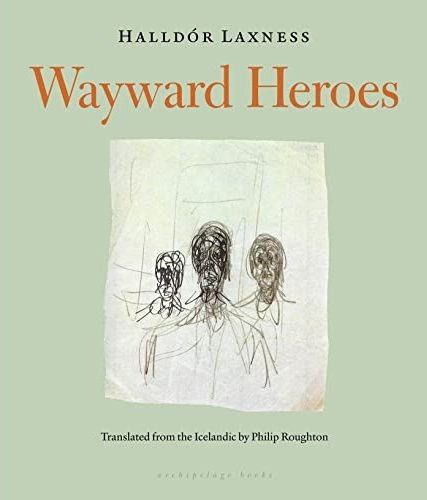(Gerpla, 1952)
When Wayward Heroes (“Gerpla” in the Icelandic) was first published in 1952, three years before Halldór Laxness received the Nobel Prize in Literature, some Icelandic readers were outraged – or at least ambivalent – while others found themselves guffawing over the exploits of the book’s Quixotic heroes.
Critics saw the book as poking fun at Iceland’s most prized cultural heritage: the Icelandic Sagas, which some people like to tout as the founding stones of the Icelandic identity. Wayward Heroes borrows the form and voice of the sagas, following oath-brothers Thorgeir and Thormod in their misadventures, taking part in Viking raids and seducing women across Europe while avoiding the new and ludicrous doctrines of the cult of Christianity – which seems to be cropping up everywhere around them.
A raucously funny tale with darkly comic depictions of slapstick-violence, beneath the humour is a commentary about the cost of pride and the post-war culture’s obsession with the “heroic” principles of violent domination. Published in a new translation in 2016, Gerpla is now available in English for the first time in fifty years.
